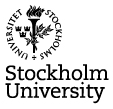Professor Steve Lansing on complexity in Bali
Professor Steve Lansing will on March 16, 2006 hold the seminar "Perfect Order: Recognising Complexity in Bali".
Over the centuries, these networks have expanded to manage the ecology of rice terraces at the scale of whole watersheds. Although each group focuses on its own problems, a global solution nonetheless emerges that optimizes irrigation flows for everyone. Did someone have to design Bali´s water temple networks, or could they have emerged from a selforganizing process?
This talk describes a series of fieldwork projects triggered by this question, ranging from the archaeology of the water temples to their ecological functions and their place in Balinese cosmology. Three models shed light on different aspects of this process at different time scales.
The first model emerges from the tradition of game-theoretical studies of the emergence of cooperation, but changes the payoff matrix to include ecological feedback relationships.
The second derives from a systems-ecology approach to the ecology of watersheds, but adds adaptive social parameters to assess the feedback effects of local systems of management.
The third begins with genetic markers tracing patterns of settlement and migration, but focuses on emergent community structure and relatedness networks.
About Professor Lansing
Steve Lansing is a professor in the departments of anthropology and ecology & evolutionary biology at the University of Arizona; research professor at the Santa Fe Institute; and director of Yayasan Somia Pretiwi, an Indonesian foundation promoting collaborative research on environmental problems in the tropics.
He is the author of Priests and Programmers: Technologies of Power in the Engineered Landscape of Bali and the forthcoming Perfect Order: Recognizing Complexity in Bali.
Time and place
Place: Linné Hall, the Royal Swedish Academy of Sciences Lilla Frescativägen 4, Stockholm
Vacancies | Contact | Environmental policy | Cookies
Stockholm Resilience Centre
Stockholm University, Kräftriket 2B | Phone: +46 8 674 70 70 | info@stockholmresilience.su.se
Organisation number: 202100-3062 | VAT No: SE202100306201


